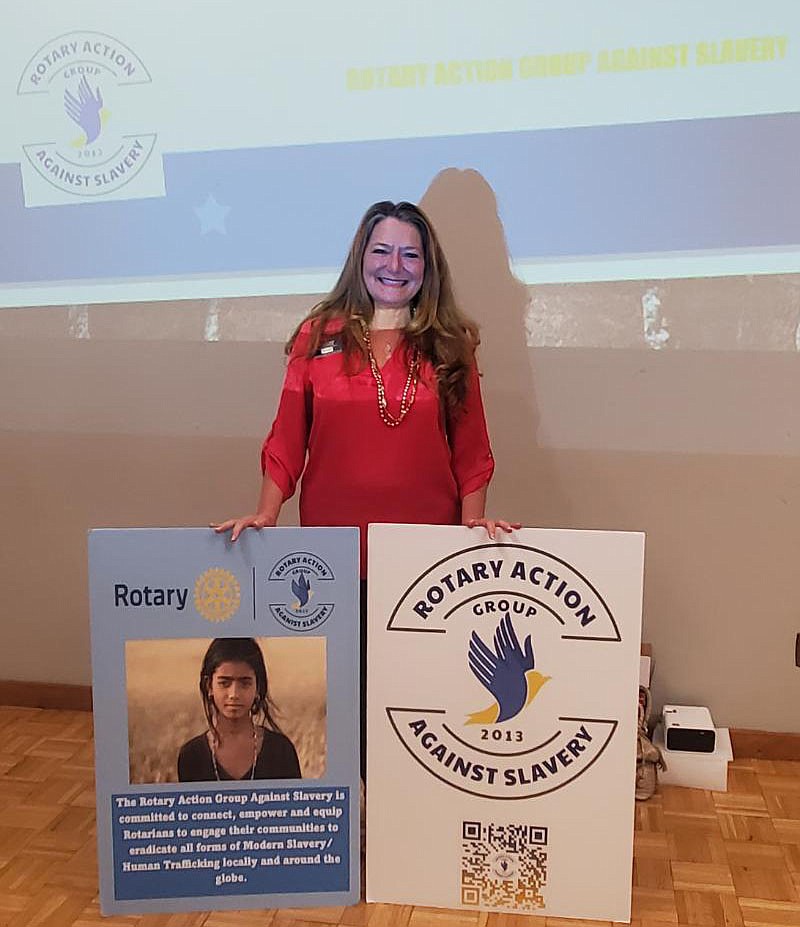Shawnee Cooper, of the Rotary Action Group Against Slavery (RAGAS), spoke to the Camden Rotary club on Tuesday, Feb. 21, about the group's efforts to bring awareness to sex trafficking.
"We have a problem. It's a $150 billion industry, second only to drug trafficking. Drugs you sell once; a human you can sell over and over again. These people go out to find people and pray upon vulnerable people. That is their job. So they're studying this day and night. That is their job is to find vulnerable people that nobody's going to be looking for," Cooper said.
Cooper said, worldwide 40.3 million people are presumed to be enslaved, more so than at any other time in the history of the world, and Arkansas has the 32nd highest incident of reported trafficking cases in the country.
She said, "One in four girls and one in 12 boys will be sexually abused before the age of 18, and the average age of entry in the prostitution or human trafficking is 12 or 14 years old. That's a 13 year old. That's a sixth grader."
Cooper said that one in five children will be approached by a sex trafficker online.
"The majority of these kids that are put in this situation think they found love. They think they have a boyfriend that loves them. It's usually an older recruiters, is what they are, and you know, they think it's a normal relationship and this older person is interested in me. And it starts off all great and wonderful, and they get presents. They are bought stuff and and are treated like queens or kings or whatever and then it turns nasty, but you know, so many times people are like 'How do people even get into that?'" Cooper said.
Cooper said that RAGAS operates under four pillars: prevention, protection, prosecution and partnership.
She stated, "We've got to have outreach programs. We have to know who is the at-risk population. We need to make sure we know where our supplies are coming from. There's a bill right now that's been passed for organizations to audit where their supply chains coming from, you know, is there human labor trafficking happening for us to have that product? And I can tell you, a big one is chocolate, and I love chocolate and I'm not trying to say anything against chocolate, but there is a lot of labor trafficking in chocolate. So, you know, just knowing that kind of stuff and and get it in your head to figure out where you can where you can make a difference."
More information on efforts to combat human trafficking can be found at https://ragas.online/

